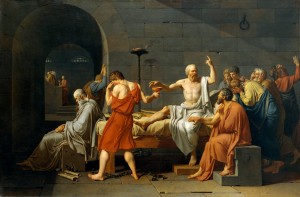
Last year a study was released from the University of Illinois and published in Science Daily, with the extraordinary finding that interest in the arts is a reliable predictor of social responsibility. People with an active interest in the arts contribute more to a civil society than those with little or no such interest, the researchers found. They analyzed arts exposure, defined as attendance at museums and dance, music, opera and theater events; and arts expression, defined as making or performing art.
Even after controlling for age, race and education, we found that participation in the arts, especially as audience, predicted civic engagement, tolerance and altruism.” [2]
The celebration of who we are as humans, the selection of “the best that is known and thought in the world” as Matthew Arnold phrased it, the presentation of a thing of beauty – there are a thousand reasons that we as artists and arts leaders fight to preserve and expand what we do. Our work at NAS with hundreds of arts leaders has shown me one unifying reason that we all believe in: We feel that without what the arts offer we as a collective society would be diminished. This is what the arts can do – link the past with the present without the corrosive effect of transaction or the poverty of the small view. Without them, we are all poorer.
[1] Not for Profit: Why Democracy Needs the Humanities, Nussbaum, 2010
[2] http://www.sciencedaily.com/releases/2012/08/120816151809.htm


